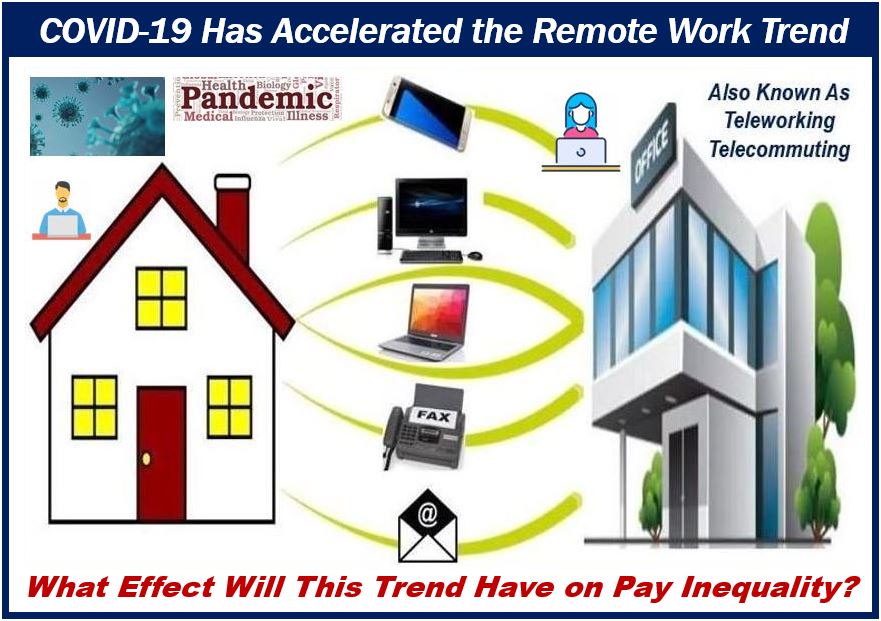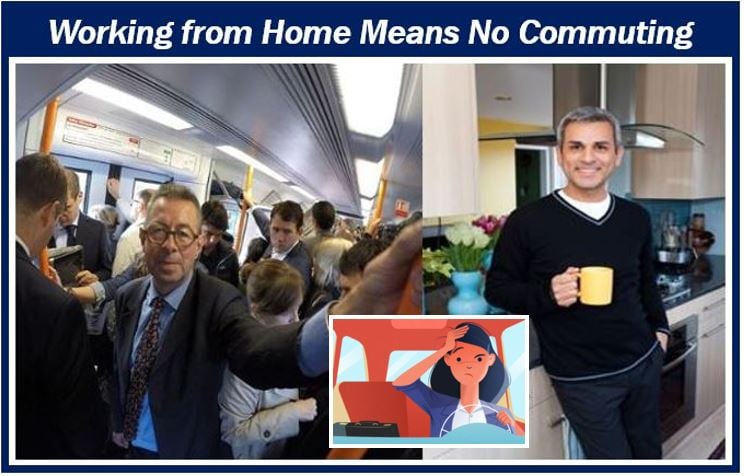When coronavirus came to America, it disrupted the lives of millions. Even people who didn’t catch the disease saw drastic changes to their daily lives. Students attended school via computer, masks became a required accessory for leaving home, and workers logged into the office instead of driving there. While some of these changes may be temporary, the rise of telework is not. Of the 88% of companies who announced remote work for their employees, 67% think it’s here to stay.

What does a long-term shift to remote work mean?
After a year defined by needing to make it to the next day, long term considerations have fallen to the wayside for many. Looking forward, what does a permanent shift to remote work mean for the American worker?
Will the typical dynamics of the modern workplace translate well to an online environment? When it comes to the ever-present issue of pay inequity, will telework help or hurt the suffering parties? While remote work presents a number of benefits for the employees able to take advantage, it won’t fix every issue.
No more commuting

The main thing workers benefit from in the transition to telework is the removal of a daily commute. Not only does sitting in traffic eat up a worker’s time, but it incurs the cost of vehicle maintenance, fuel, and even toll fees in certain cities.
If a worker doesn’t have to visit their company’s office very often, then they no longer need to live in the expensive metropolises where so many large employers are located. They can move hours away from the city center and search for more affordable housing and cost of living. Even a move from one major city to another can cut annual costs.
Many remote workers are relocating
The annual purchasing power of $132,243 in New York City is equal to that of $50,000 in Cleveland. This sort of migration is already popular: up to 12% of American households may already relocate due to remote work, and these numbers may increase by 3 or 4 times in the near future.
If a worker moves to a lower cost market, will they face a salary cut? The answer varies by company. While Reddit has no intention of cutting remote workers’ pay based on their location, VMware will align salaries based on local costs of living with variations up to 18%. However, an employee who sees a significant enough drop in annual expenses can still come out ahead even if their earnings decrease. Americans can save between $2500 and $4000 by working from home. Location-based pay differences are a form of wage gap, but they’re a type in which workers can still benefit.
What will the effect be on pay inequity?
In short, remote work will cause millions more Americans to be affected by the location-based wage gap. What will it do to the more frequently discussed forms of pay inequity, those brought about by differences in gender and race? In truth, the predictions are far less optimistic. It may be the case that women and racial minorities may have an easier time getting hired than they would otherwise. With reduced face to face interaction, there is also the chance that management bias against these groups will decrease.
However, these are still possibilities, neither of which resolves the racial and gender wage gaps by themselves. Right now, women still earn less than men do in remote positions. Furthermore, the jobs women and racial minorities commonly occupy are less likely to allow working from home. This means that all the benefits remote workers can achieve by moving to a more affordable area aren’t available to them.
While some gain others will lose out
As with any change to a major system, the greater transition to remote work creates a set of winners and losers. Those who can take advantage of the benefits will increase their standard of living while those who cannot will see no direct improvement to their lives or earnings. Telework may mean great things for the future, but it will not solve wage inequality.
Interesting related article: “What is Income Inequality?“

